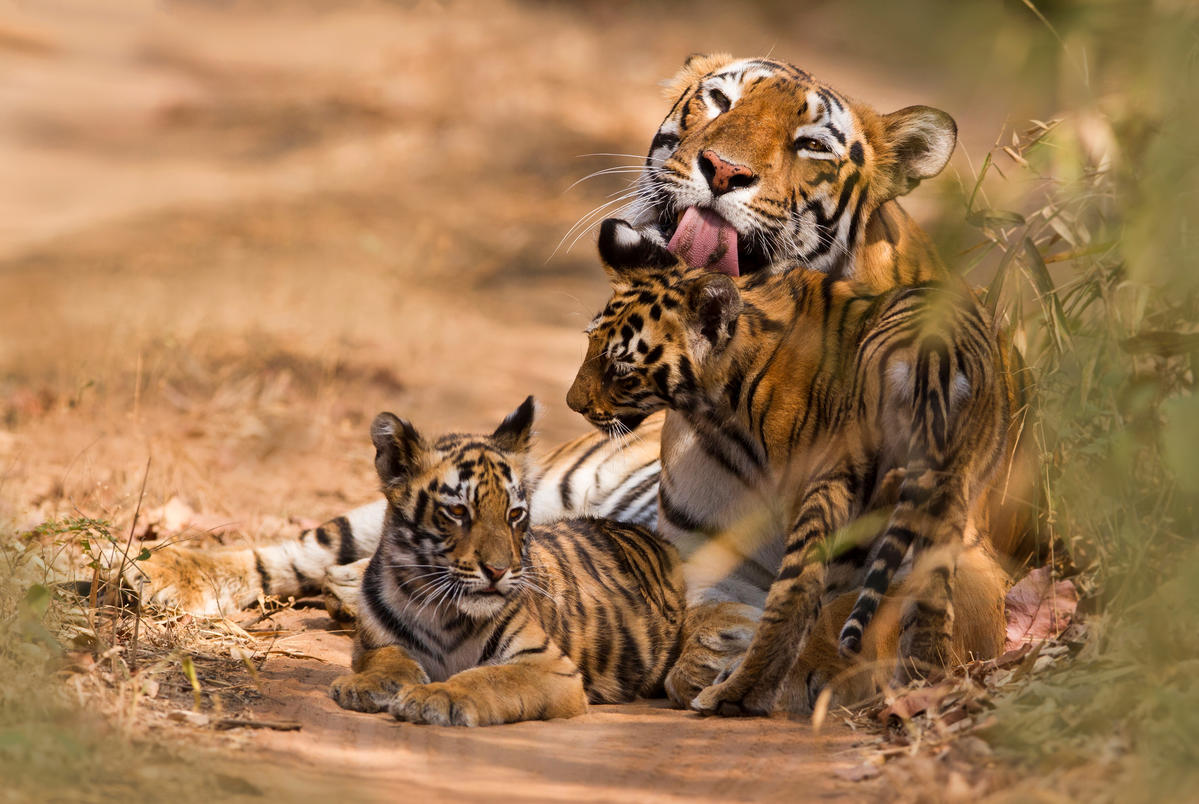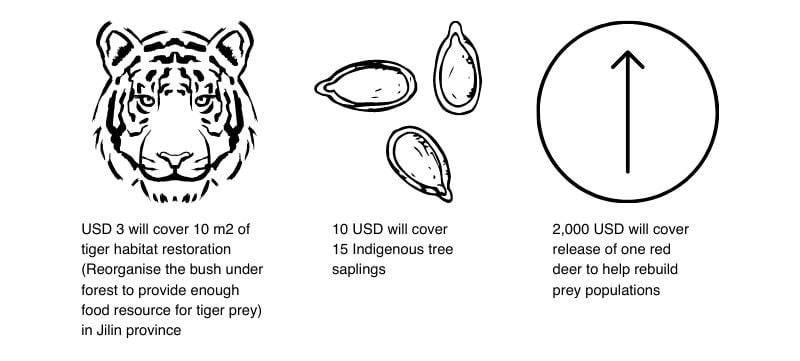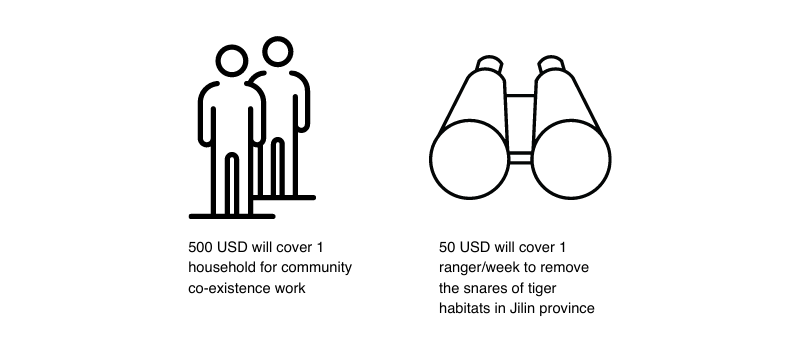Wild tigers are some of the most beautiful and awe-inspiring animals on the planet. But did you know, 10 years ago we reduced their numbers to an all time low?
As their forest homes are being destroyed, it is harder and harder for a tiger to find a mate - or food for their cubs. What’s more, they are hunted by humans and sold into the illegal wildlife trade. By 2010, this had forced wild tigers into extinction in Cambodia and Vietnam and perilously low in many other countries.
Unwilling to let these iconic cats fade into memory, the world united for one of the most ambitious conservation goals in history: double world tiger numbers by 2022. We are nearly there, but the fight is not over.
Will you donate today and help to secure a future for tigers?
Halfway through this project, global tiger numbers increased for the first time since tiger conservation began. This is a big win, but there’s still a long way to go. Each week, at least two tigers are seized from illegal wildlife traders - and this is just a fraction of the trade. Tigers are still the most endangered big cat, reduced to a tiny fraction of their homelands. Plus, despite global progress, numbers continue to go down in Southeast Asia. We are afraid we could lose them there entirely.
That’s why this year, the Year of the Tiger, is so important. It’s a chance for us to come together and secure a future for tigers - and the wild places they live in. Whilst global tiger numbers haven’t doubled yet, they are getting close. Your donation can help us get there.




With four playful cubs in tow, a powerful tigress strides past the camera trap. The ‘record’ button is triggered, capturing footage of a tigress unrecognisable as Rewa.
When she was first photographed in 2012 in Bhutan’s Jigme Singye Wangchuck National Park, Rewa looked very different. She was skinny, frail and delicate.
In an incredible turn of events, over the last six years Rewa has regained her strength, and has given birth to at least seven cubs. Though she is just one tiger, her contribution to the global tiger population in a few short years is huge - proving how one cat can make a difference. There is a reason she was given the name Rewa, meaning ‘Hope’.
Dedicated conservation efforts are helping Rewa and her cubs to thrive, but they are not out of the woods yet. Poaching and illegal wildlife trade remain a major threat to the future of this tiger family and others alike. Your support will help us protect core habitats for tigers like Rewa and her cubs, and to break the trade chains that enable illegal wildlife trade.

Snares are indiscriminate killers. Small, cheap and easy to make, these deadly and cruel traps are devastating populations of tigers and their prey across Southeast Asia.
Sitting silently on the forest floor, they snag unsuspecting animals as they pass by, leading to brutal injuries and often death. In Malaysia, snares are a key reason tiger numbers have plummeted to fewer than 200. One landscape - Belum Temengor - lost over half of its tigers in a two year period from 2016-2018. The main culprit? Snares.
With Malaysia’s tigers in crisis, WWF sprung into drastic action and teamed up with people who know the forest best: the Orang asli indigenous people who have called this forest home for generations. Today, 15 teams of community members relentlessly scan the forest floor in search of snares. Each one they locate and deactivate is potentially a life saved.
The patrols’ tireless efforts are renewing hope. There are now 90% fewer snares in Belum Temengor. This marks huge progress, but to make the forest a safe haven for tigers and other wildlife we need your help to sustain the vital work of these community patrols.


© 2017 WWF - World Wide Fund For Nature© 1986 Panda Symbol WWF – World Wide Fund For Nature (formerly World Wildlife Fund)® “WWF” is a WWF Registered Trademark Creative Commons license.